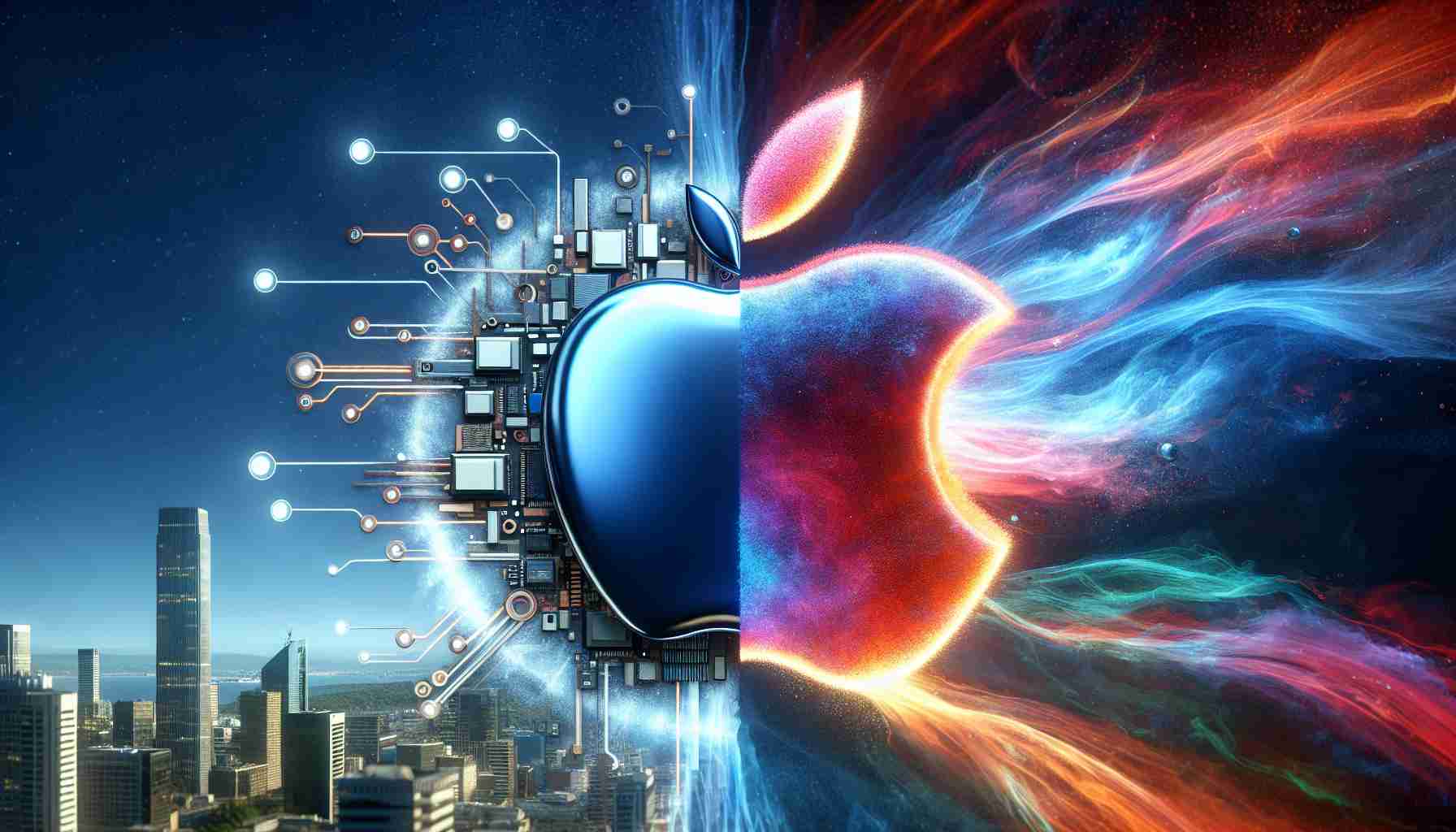In a shrewd move to dominate the smartphone realm, Apple has revealed its custom artificial intelligence system dubbed ‘Apple Intelligence’ at its annual developers’ conference. Unlike a routine AI announcement, this launch signifies Apple’s commitment to erase any trailing status in AI perceptions by enabling selective integration with OpenAI’s chat services, representing both defiance and ambition in the tech giant’s strategy.
Meanwhile, Samsung, not content with resting on its laurels after securing the AI smartphone market’s pole position in the first quarter, gears up for a counter. The upcoming Galaxy Unpacked event is where Samsung is set to unveil its latest series. Anticipation is building for the Galaxy Z Flip6 and Z Fold6, which promise advanced AI capabilities building on their predecessors’ success.
Samsung goes beyond smartphones, infusing AI into wearable devices like the Galaxy Watch and the Galaxy Ring, showcasing a relentless drive for differentiation. Adding intrigue to this technological arms race, Samsung strategically positioned an ex-Apple executive, previously in charge of Siri, to oversee their newly established North American AI Center.
The stakes are high as the industry behemoths brace for a showdown in the latter half of the year, with the battle lines drawn between Samsung’s endeavor to maintain its top AI smartphone market share and Apple’s audacious campaign to upend the ranking. Observers are fixated on this clash of titans, where the direction of the smartphone market for both Samsung and Apple could be redefined.
Apple’s Push for AI Supremacy:
Apple’s introduction of ‘Apple Intelligence’ is a strategic move to strengthen their position in an increasingly AI-centric industry. Apple, historically more insular with its AI technologies, particularly with Siri, its virtual assistant, is choosing to selectively integrate with external AI services, marking a shift in strategy. This integration could enhance Siri’s capabilities, addressing the criticism it has faced over the years when compared to competitors like Google Assistant.
Samsung’s AI Ambitions:
Samsung’s Galaxy Z Flip6 and Z Fold6 are not just smartphones but represent the forefront of their foldable technology, where AI improvements could include enhancing battery life, optimizing display performance, or improving camera functionalities using machine learning algorithms.
Key Questions and Answers:
– What is at stake for Apple and Samsung? Both companies are competing not just for market share but for leadership in AI innovation, which could be crucial for the next generation of consumer technology.
– How might this competition affect consumers? The rivalry is likely to accelerate the development and release of more intelligent, feature-rich devices, benefiting consumers with better products.
Key Challenges and Controversies:
The integration of AI into devices brings privacy concerns. As AI systems require data to learn and improve, the collection and use of personal information are under scrutiny. Users and regulators are increasingly concerned about how tech giants handle this sensitive data.
Advantages and Disadvantages:
For Apple, the advantage lies in its complete control over hardware and software, enabling optimized AI performance. The disadvantage may come from its late entry into some AI areas, potentially lagging behind competitors.
Samsung, with its spread across various electronics, has an advantage in integrating AI into a broad range of devices beyond smartphones. A disadvantage might include difficulty in integrating AI features that stand out from the diverse AI offerings in the market.
To learn more about Apple and Samsung’s latest developments and products, you can visit their official websites at the links provided below:
– Apple’s Official Website
– Samsung’s Official Website
Please note, you should verify the URLs as I can only ensure they typically point to the main domains of Apple and Samsung.
